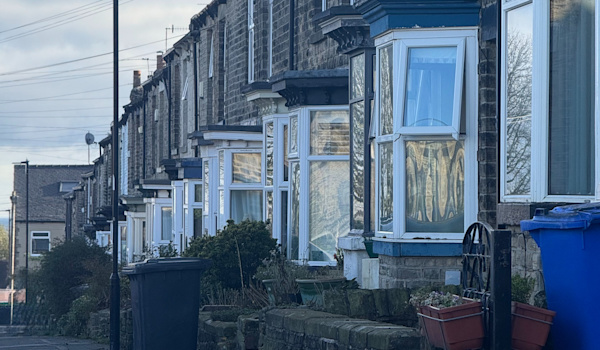The Housing Ombudsman’s complaints handling code is now a statutory requirement for social landlords, and it has new powers to address systemic issues in social housing.
Published April 2024
Complaints about social housing
Complaints about social housing conditions received significant attention following the tragedies of the 2017 Grenfell Tower fire and the death of two year old Awaab Ishak in 2020. The Grenfell Tower fire killed 72 people, and Awaab Ishak died from exposure to serious mould in his housing association home.
Social housing residents can escalate their problem to the Housing Ombudsman if they are not happy with their landlord's response to an initial complaint. The Ombudsman handles complaints about social landlords, including councils. It can look at issues like fire safety and landlords not carrying out repairs. It's independent, impartial, and free.
The Ombudsman can instruct a landlord to take steps to put things right.
More people are escalating complaints to the Ombudsman. From April to December 2023 there was a 91% increase in cases referred to the Ombudsman, compared to the same period the previous year.
New powers for the Housing Ombudsman
The Social Housing (Regulation) Act 2023 gave the Housing Ombudsman new powers and duties from 1 April 2024, including a new statutory code for handling complaints and a duty to monitor whether landlords comply.
A new statutory complaint handling code
The Ombudsman's complaint handling code is now a statutory requirement for social landlords. The code was produced in consultation with landlords, tenants, and other stakeholders.
The code sets out the requirements for landlords to effectively respond to complaints.
Duty to monitor compliance with the code
The Ombudsman must monitor social landlords' compliance with the new code. It can issue a complaint handling failure order if a landlord does not comply.
Landlords must complete an assessment of their complaint handling as part of their annual service report. This helps the Ombudsman to check landlords are following the code, and it can use the data to identify systemic issues.
Improved complaints culture
Private claims management companies have profited from poor housing conditions and gaps in legal aid provision. Writing in Inside Housing in 2022, Carol Matthews discusses 'claims farms' targeting social housing tenants: legal firms that pocket "three times as much as the tenant is getting in compensation and double the amount spent on repairs."
The Ombudsman's new code aims to enable a positive complaints culture across the housing sector and support early complaint resolution. This might encourage more tenants to use the free complaint routes available, and avoid lengthy and expensive legal processes.
How the changes affect complaints
The Ombudsman only takes on complaints that have gone through a landlord's complaints procedure, where the landlord has had the chance to put things right. For residents, the code is a guide to what they should expect from their landlord when they make a complaint.
The new code introduces key changes, including a cap on the number of stages a complaints process can have, and revised timescales for complaint decisions.
Service requests and complaints
The new code states landlords must recognise the different between a service request and a complaint and set this out in their complaints policy.
A service request is when a resident asks their landlord to put something right. For example, when a resident discovers a leaking roof they can ask their landlord to fix the problem. Service requests are not complaints but the landlord must record and monitor them. Repeated service requests about the same issue might be a complaint where the resident is not satisfied with the steps the landlord has taken.
A complaint is an expression of dissatisfaction about the standard of service. If a resident has reported an issue and they are not happy with the response they could complain. Landlords must not stop their work to address an ongoing service request if the resident complains.
Complaints can only have up to two stages
The Ombudsman's new code does not allow complaint processes with more than two stages.
Under a two stage process, a resident's complaint is initially considered under stage 1. If the resident is not satisfied with the stage 1 resolution they can escalate it to stage 2, where it is usually looked at by a senior manager.
Capping the number of stages could prevent residents from being trapped in an extensive complaints procedure, and lead to faster resolutions. Where a landlord is not able to resolve an issue within two stages, the resident can escalate the case to the Ombudsman rather than having to go through extra steps.
New deadline for complaint acknowledgement
The code sets out new deadlines for a landlord to acknowledge a resident's complaint. The landlord should define what the complaint is and tell the resident when they can expect a full response.
A landlord has five working days to give written acknowledgement. This applies to both stages of the complaint process: the clock starts five days from initial complaint for stage 1, and five days from escalation to stage 2.
New timescales for complaint responses and extensions
The landlord must respond to the complaint within a specific time. The new code confirms the clock runs from the date the complaint is acknowledged.
Landlords must issue a full response to a stage 1 complaint within 10 working days from acknowledgement, with an option to extend by 10 working days. For stage 2 complaints, landlords must respond within 20 working days from acknowledgement, with an option to extend by 20 working days.
Any additional extensions must be for a good reason and the landlord must clearly explain this to the resident.
A resident can ask the Ombudsman to escalate the issue if they do not get a response from their landlord. The Ombudsman could issue a complaint handling failure order, giving the landlord a final chance to respond. If the landlord doesn't respond, the landlord's procedure is considered to have been exhausted and the resident can ask the Ombudsman to investigate.
Identifying and addressing systemic issues
Many complaints identify issues that are not isolated. A series of separate complaints about a landlord's delay fixing damp and mould suggests a wider problem. The Ombudsman can conduct investigations beyond the initial complaint to see whether the issue is caused by systemic failings.
The Ombudsman's new duty to monitor compliance with the complaint handling code allows it to gain a lot of insight from the data it gathers. It doesn't have to rely on complaints alone, but can find out more from yearly landlord self assessments. This helps the Ombudsman identify good practice and where it expects improvement.
Where the Ombudsman finds a fault it can refer the landlord to the appropriate regulatory body, such as the Regulator of Social Housing. The Social Housing (Regulation) Act 2023 introduced new provisions to ensure a cohesive approach between the organisations, including improved information exchange.
Orders to fix wider issues
Some housing issues affect more than one household. One person might complain about service charge increases which could reveal an issue affecting everyone else who pays service charges to the landlord.
The Ombudsman can only consider individual complaints, so residents can't complain as a group. Historically, the Ombudsman could only make orders relating directly to the complainant's situation, and recommendations to address wider issues. The landlord didn't have to follow the recommendations.
But from late last year, the Ombudsman can require a landlord to review practice to prevent a repeated service failure that affects other people. For example, when a complaint reveals a service charge process issue, the Ombudsman could order the landlord to review its practice.
The new powers to help identify and address systemic issues could help others, not just the person who complained.



